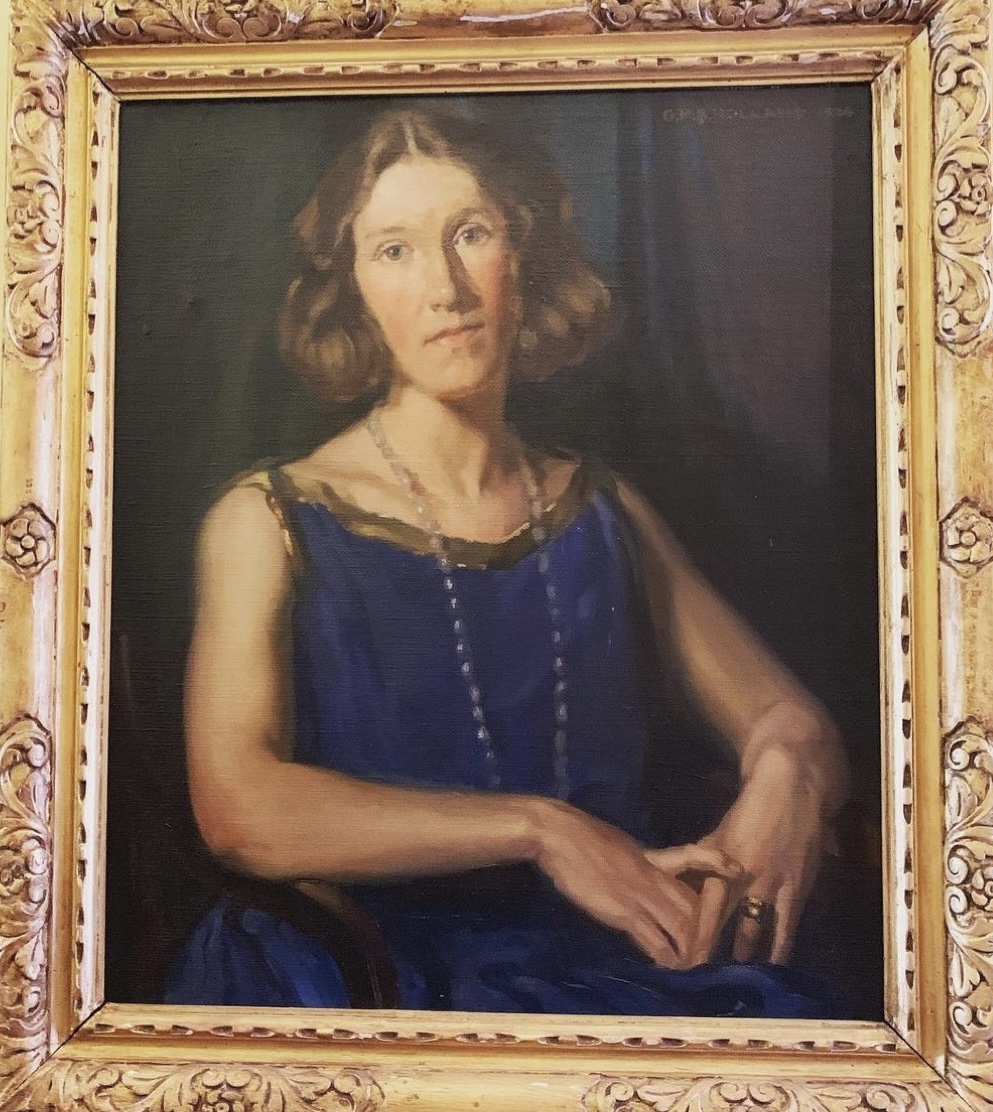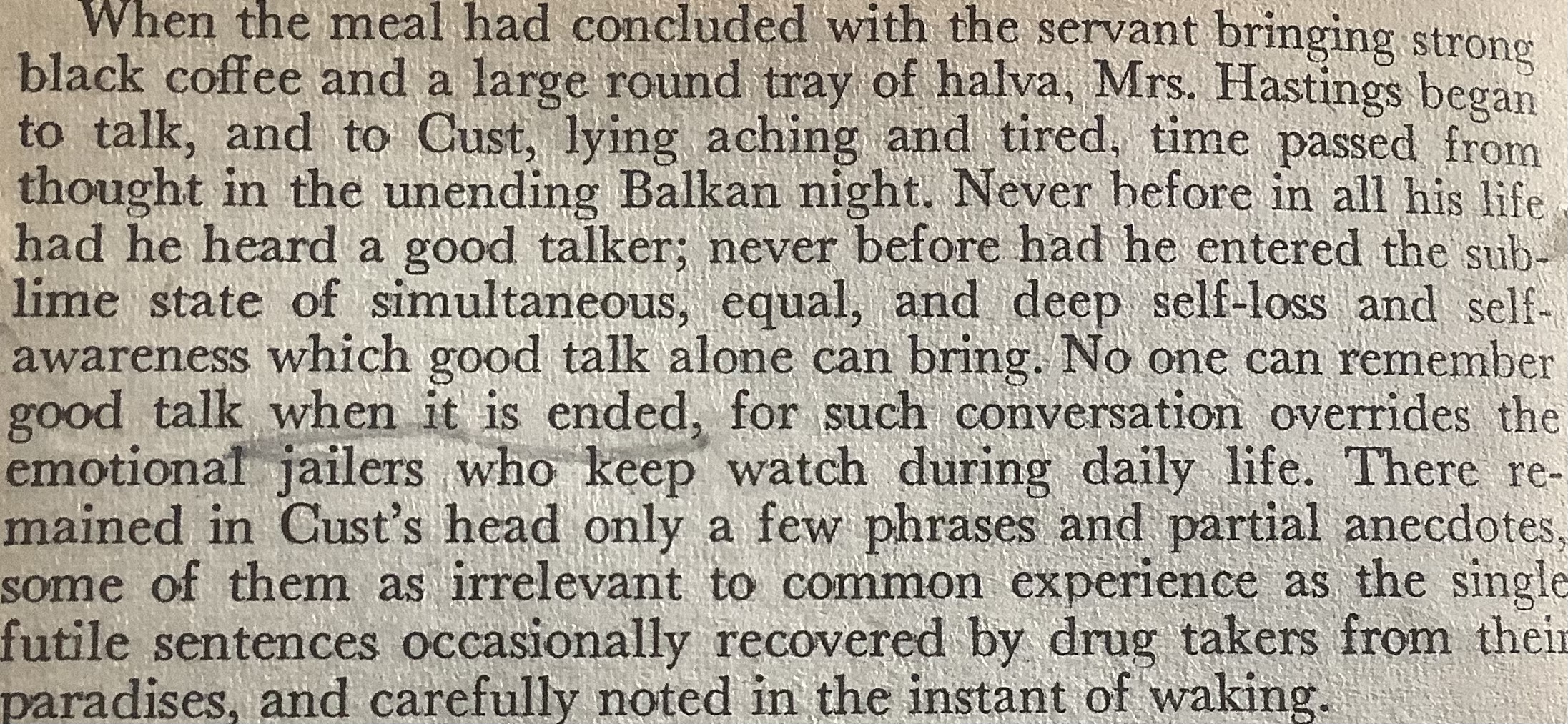
THE INSUFFICIENT ANSWER by Robert Aickman
“0h, it’s surely not as bad as that. No. 42 I thought rather good.”
…which statement by one of the characters, at the very start of this novelette, sheds an added slant upon its title!
It is indeed ironically a quite insufficient answer, one that is knowingly not an answer at all. A self-mockery that goes with the novelette’s melodramatic Gothic plot, a plot that definitely seems in prophetic or inexplicably preternatural synergy with Mark Samuels’s relatively recent novel, ‘Witch-Cult Abbey’, a work arguably superior to this Aickman novelette and reviewed Zenoistically by me HERE. Please read both works and you will see what I mean, this one by Aickman starting with an art gallery running a series of exhibitions entitled “Women Who’ve Made as Good As Men”. (Sic)
A character called Cust shares his name with a past British Home Secretary; the latter, as well as advocating a National Lottery, had been a close friend of Lola Hastings – and she is sculptor and painter holed up in distant Slovenia inside a Gothic, maze-like Schloss and lots of flaming faggots to light the place up, living with a woman called Poppy Franklin and another (imprisoned?) girl as a model called Felicity.
Cust is sent by the art gallery to persuade Lola to visit London to help bolster her sales or otherwise the whole business would collapse. Well, to cut a long story short, Cust returns to London, tail between his legs, tellingly with Felicity’s handbag in his suitcase, after a rather convoluted plot, where Poppy is amazingly dying of pneumonia one day and quite fit the next. No way I can cover the whole ground of this plot, but here are some highlights as one delves through it…
Lola’s art involves statues with colour, and she also has some local peasants as models, and her drawbridge doesn’t work, and there is some strange geological rift outside. — There is a lot of great writing, as one would expect with Aickman, involving Cust’s experience of the journey, his arrival at the ‘cut-off’ Schloss, and the adventures with these strange women. — Lola hates noise and sculpts in the dark and is also learning to paint in darkness, and Cust feels he need to be a Trappist to cut down on the noise he makes! — But there is much clanging of shutters, and he half-dreams some of his adventures — Cust explains to Lola that the art gallery felt that her answers to their demands on her homecoming were insufficient! — Lola has an eikon decorating her room, but one questions her devotions, especially when the chapel she prays in is not exactly a chapel. — They play games of fives, a sport of which Cust was once a champion. — “Mortifying thoughts crawled like earwigs through his brain….” —

I had no idea what all that meant, but I somehow knew there was much meaning in it that I would understand toward the eschatological end of things. — But “All kinds of things are hidden so well they’ll never be found again.” — Matters of plot concerning a well, a spider, a Singer sewing machine, Whitby, Napoleon Bonaparte and some dropped cigarette butts — and Cust’s whole visit becomes “a wisp of demons”… — he thinks he sees Felicity lying in tomb or “waxy sarcophagus” and there are many such effective horror scenes that somehow resonate with Mark Samuels’ aforementioned novel of the Abbey and with his Lilith/Lola of the White Hands. — Poppy tells Cust that Lola had come here to this Schloss to escape men (Aickman himself being “poisoned with masculinity”, an expression used elsewhere in his canon of fiction.) — and here are Lola’s final words (my bold)…. “We lock the Schloss to keep in what we lock our rooms to keep out. […] I don’t think that either of us, Miss Franklin or I, would be particularly acceptable to London society at the present moment. We must absent ourselves from that felicity a while.” And, in still-evolving real-time, I think I now understand that other mysterious passage shown above. Another irony, with a colourful ’city’ embedded in ‘felicity’, as other bodies were embodied in stone or rock.
***
All my Aickman reviews: https://dflewisreviews.wordpress.com/robert-aickman/
No comments:
Post a Comment